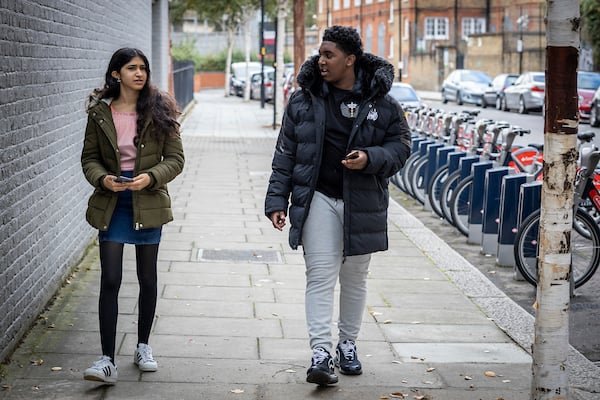Sexual consent laws in the UK

The definition of sexual consent in UK law is clear, but you might have some questions about what it all means. We asked top lawyer Kim Harrison to help us better understand the issues around sexual consent and the law.
In law, a person has consented to sex if ‘they agree by choice and have the freedom and capacity to make that choice’. This means they can’t be unconscious, asleep, drunk, or too young to understand about sex.
About consent laws in the UK
Consent laws in the UK say there are two ‘tests’ that judges and juries should use to work out if consent was given. The accused must:
- Believe they got consent for sex.
- Their belief must be ‘reasonable’ – for example, if a person was unconscious at the time, there’s no way they could reasonably have agreed to sex.
A court will want to know about the relationship history too – and whether violence, grooming or exploitation occurred, or a power imbalance – for example, a teacher with a pupil.
“The law tends to create a general rule with some exceptions, but each case will turn on its own facts”, explains Kim. “So in deciding whether someone is consenting to a sexual act, young people should use their common sense and communicate with each other”.
Here are some common scenarios when consent can become legally and emotionally confusing:
Consent under the influence
If a person is accused of a sexual offence, proving they got consent relies on them being able to fully remember what happened. By definition, being so wasted you can’t remember anything will mean you didn’t get consent.
Kim says: “Remember – the person performing the act needs to have a ‘reasonable belief’ that there is consent. If you’re too intoxicated to form that reasonable belief then that’s your defence gone.”
If you’re confused about whether someone is really drunk or not
Drink and drugs can limit our ability to make good decisions and lessen our understanding of what’s going on.
Someone could be absolutely plastered and seem fine to you. If you’re in this situation it might be best to say to your partner that you think they’re too drunk and you can’t tell if they really want to do this. See our article on drunk sex for more information.
If someone doesn’t actually say “no” or “yes”
There isn’t anything in the law that says it has to be verbal,” explains Kim. “The clearer you can be with each other about what you want to happen the better.”
In stressful situations, people use all kinds of body language to indicate they aren’t happy but sometimes say nothing out loud. Similarly, if a person is enthusiastic about having sex, you’ll know about it, but they won’t necessarily be yelling “YES!”. See our article on enthusiastic consent for more thoughts on this.
Can a 16 year old date a 20 year old?
Because the age of consent is 16, it is legal to engage in sexual activity with someone who is that age or older, regardless of how much older you are than them.
However, even though people over the age of 16 can legally consent, it is still really important to consider whether there is an equal balance of power within the relationship. An age gap can also mean there is a difference in maturity and life experiences between you and this doesn’t always lead to the healthiest dynamic. It’s important to communicate about this and make sure both of you feel safe and respected.
Your friends and family may also find it socially unacceptable if you’re 20 years old or older and you’re in a relationship with someone as young as 16, but the older you both are, the less anyone will care about a four year age gap. If you’re unsure about your relationship, take the Mix’s Relationship Health Check Quiz.
If you want to send sexts (sexy pictures)
Again, confusing. Although UK age of consent laws state you have to be over 16 to have sex, if you or your partner are under 18, sexting is illegal. It’s also against the law to share sexually explicit images of someone else without their consent, no matter what age they are.
What happens when you’re accused of a sexual offence?
If you were accused of a sexual offence such as statutory rape, sexual assault or rape, you would be questioned by the police and other agencies.
If found guilty you’d be charged with an offence and face a criminal record. This could result in your name appearing on the sex offenders register and a possible prison sentence. See our article on sexual offences for more info.
Still confused? Here’s our best answer:
Sex should be fun – for both parties. Why would you want to do it when you won’t be able to fully remember what happened?
Good sex is about having good communication and interpreting body language. If you saw a friend frozen and unable to speak you’d probably know something was wrong. Well, the same rules apply in the bedroom. Stop immediately if you feel something is wrong and make sure your partner really wants to carry on – that way, you’ll always get 100% consent.
For more resources:
- Brook provides free sexual health and wellbeing services for young people in the UK. Brook’s services include local clinics and online digital sex and relationships tool.
- Rape Crisis offers support and advice to victims of rape and sexual assault, no matter how long ago the attack was. 0808 802 99 99
- SurvivorsUK offers advice and support to male victims of rape and sexual assault. Text on 020 3322 1860.
Next Steps
- Chat about this subject on our Discussion Boards.
By The Mix Staff
Updated on 27-Apr-2023
No featured article













